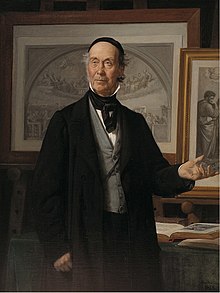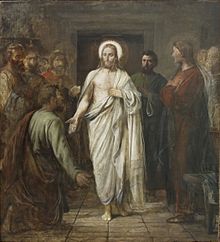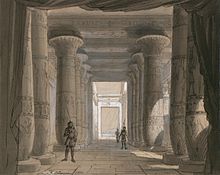Dear Zazie, Here is today’s Lovers’ Chroncile from Mac Tag dedicated to his muse. Have you tried to replace someone only to find it is not the same? Rhett
The Lovers’ Chronicle
Dear Muse,
no, it is not
there has not
been anything
like this
the story
and the verse
continue
after all that has happened
we can look upon what
we are creatin’, becomin’
halves of a whole, findin’
there is no higher purpose
bein’ us
bein’ here
© copyright 2021 mac tag/cowboy coleridge all rights reserved
© copyright 2020 mac tag/cowboy coleridge all rights reserved
the song of the day Pat Green Wave on Wave © Sony/ATV Music Publishing LLC, CALHOUN ENTERPRISES
nothin’ remains
but a story and perhaps,
sumpthin’ of a poem
which is fine
after all that happened
to have a tale to tell is all
that ever shoulda been
hoped for
give until
you can look upon
what you have created
(or until you become
half of a whole)
and know there is no
higher purpose
it was
bein’ with you
and now,
it is bein’ here
no, not the same
but it will have to do
so the story continues
© copyright 2018 mac tag/cowboy coleridge all rights reserved
incredible,
the uniform
blanket of white,
the steady fallin’
flakes addin’ more
and the silence
all sound seems
to disappear
no need to dream
of a white christmas
instead, i will dream
of a you christmas
© copyright 2017 mac tag/cowboy coleridge all rights reserved
for Marci…
serendipity
helluva thing
never saw it comin’
but there you were
as pretty as ever
now i believe
in Christmas miracles
how the… what the…
shock and awe
at a loss for words
still processin’
still grapplin’…
it was you
you were here
yes Virginia,
Christmas miracles
do exist
i turned around
and there you were
you looked
so damn good
and then we hugged
you felt so good
bittersweet
resigned to bein’
without you
not knowin’
when or if
i would see you
and then…
there you were
so
you were there
we hugged
we talked
you left
again
goddamnit
such, blithesome ache,
to see you
to watch you
walk away again
© copyright 2016 mac tag/cowboy Coleridge all rights reserved
Not The Same
Took someone else
To one of the places we’ve been
But it was not even the same
Not even close
Though there are pesky, unspoken
Limitations that surround us,
Precede us, accompany us
Follow us and envelop us
Nothin’ will ever be the same
Once we have experienced it
Together
© copyright 2012 mac tag/Cowboy Coleridge all rights reserved
The Song of the Day is “Not the Same” by Roxanne.
| Wilhelm Marstrand | |
|---|---|

Christen Købke, Portrait of Wilhelm Marstrand, oil on canvas, 1836
|
Today is the birthday of Nicolai Wilhelm Marstrand (Copenhagen 24 December 1810 – 25 March 1873 Copenhagen); painter and illustrator. Marstrand is one of the most renowned artists belonging to the Golden Age of Danish Painting.
Gallery



| Matthew Arnold | |
|---|---|

Matthew Arnold, by Elliott & Fry, circa 1883.
|
|
Verse
Alas! is even love too weak
To unlock the heart, and let it speak?
Are even lovers powerless to reveal
To one another what indeed they feel?
I knew the mass of men conceal’d
Their thoughts, for fear that if reveal’d
They would by other men be met
With blank indifference, or with blame reproved;
I knew they lived and moved
Trick’d in disguises, alien to the rest
Of men, and alien to themselves — and yet
The same heart beats in every human breast!
- “The Buried Life” (1852), st. 2
- But often, in the world’s most crowded streets,
But often, in the din of strife,
There rises an unspeakable desire
After the knowledge of our buried life;
A thirst to spend our fire and restless force
In tracking out our true, original course;
A longing to inquire
Into the mystery of this heart which beats
So wild, so deep in us, to know
Whence our lives come and where they go.- “The Buried Life” (1852), st. 6
- And long we try in vain to speak and act
Our hidden self, and what we say and do
Is eloquent, is well — but ’tis not true!- “The Buried Life” (1852), st. 6
- Resolve to be thyself; and know, that he
Who finds himself, loses his misery.- “Self-Dependence” (1852), lines 31-32
- Strew on her roses, roses,
And never a spray of yew.
In quiet she reposes:
Ah! would that I did too.- “Requiescat” (1853), st. 1
- Her cabin’d, ample Spirit,
It flutter’d and fail’d for breath.
To-night it doth inherit
The vasty Hall of Death.- “Requiescat” (1853), st. 4
- How thick the bursts come crowding through the leaves!
Again — thou hearest?
Eternal passion!
Eternal pain!- “Philomela” (1853), st. 3
| Aida | |
|---|---|
| Opera by Giuseppe Verdi | |

Cover of an early vocal score, c. 1872.
|
|
And on this day in 1871 – Aida opens in Cairo, Egypt.
Aida is an opera in four acts by Giuseppe Verdi to an Italian libretto by Antonio Ghislanzoni. Set in Egypt, it was commissioned by and first performed at Cairo’s Khedivial Opera House on 24 December 1871. Giovanni Bottesini conducted after Verdi himself withdrew. Today the work holds a central place in the operatic canon, receiving performances every year around the world. At New York’s Metropolitan Opera alone, Aida has been sung over 1,100 times since 1886.




Synopsis
Antecedent: The Egyptians have captured and enslaved Aida, a Nubian princess. An Egyptian military commander, Radamès, struggles to choose between his love for her and his loyalty to the Pharaoh. To complicate the story further, the Pharaoh’s daughter Amneris is in love with Radamès, although he does not return her feelings.
Act 1
Scene 1: A hall in the King’s palace; through the rear gate the pyramids and temples of Memphis are visible
Ramfis, the high priest of Egypt, tells Radamès, the young warrior, that war with the Nubians seems inevitable, and Radamès hopes that he will be chosen as the Egyptian commander (Ramfis, Radamès : Sì, corre voce l’Etiope ardisca / “Yes, it is rumored that Ethiopia dares once again to threaten our power”).
Radamès dreams both of gaining victory on the battlefield and of Aida, the Nubian slave, with whom he is secretly in love (Radamès: Se quel guerrier io fossi! … Celeste Aida / “Heavenly Aida”). Aida, who is also secretly in love with Radamès, is the captured daughter of the Nubian King Amonasro, but her Egyptian captors are unaware of her true identity. Her father has invaded Egypt to deliver her from servitude.
Amneris, the daughter of the Egyptian King, enters the hall. She too loves Radamès, but fears that his heart belongs to someone else (Radamès, Amneris: Quale insolita gioia nel tuo sguardo / “In your looks I trace a joy unwonted”).
Aida appears and, when Radamès sees her, Amneris notices that he looks disturbed. She suspects that Aida could be her rival, but is able to hide her jealousy and approach Aida (Amneris, Aida, Radamès: Vieni, o diletta, appressati / “Come, O delight, come closer”).

The King enters, along with the High Priest, Ramfis, and the whole palace court. A messenger announces that the Nubians, led by King Amonasro, are marching towards Thebes. The King declares war and proclaims that Radamès is the man chosen by the goddess Isis to be the leader of the army (The King, Messenger, Radamès, Aida, Amneris, chorus: Alta cagion v’aduna / “Oh fate o’er Egypt looming”). Upon receiving this mandate from the King, Radamès proceeds to the temple of Vulcan to take up the sacred arms (The King, Radamès, Aida, Amneris, chorus: Su! del Nilo al sacro lido / “On! Of Nilus’ sacred river, guard the shores”).
Alone in the hall, Aida feels torn between her love for her father, her country, and Radamès (Aida: Ritorna vincitor / “Return a conqueror”).
Scene 2: Inside the Temple of Vulcan
Solemn ceremonies and dances by the priestesses take place (High Priestess, chorus, Radamès: Possente Ftha … Tu che dal nulla / “O mighty Ptah”). This is followed by the installation of Radamès to the office of commander-in-chief (High Priestess, chorus, Radamès: Immenso Ftha .. Mortal, diletto ai Numi / “O mighty one, guard and protect!”). All present in the temple pray for the victory of Egypt and protection for their warriors (Nume, custode e vindice/ “Hear us, O guardian deity”).
Act 2
Scene 1: The chamber of Amneris
Dances and music to celebrate Radamès’ victory take place (Chorus, Amneris: Chi mai fra gli inni e i plausi / “Our songs his glory praising”‘). However, Amneris is still in doubt about Radamès’ love and wonders whether Aida is in love with him. She tries to forget her doubt, entertaining her worried heart with the dance of Moorish slaves (Chorus, Amneris: Vieni: sul crin ti piovano / “Come bind your flowing tresses”).
When Aida enters the chamber, Amneris asks everyone to leave. By falsely telling Aida that Radamès has died in the battle, she tricks her into professing her love for him. In grief, and shocked by the news, Aida confesses that her heart belongs to Radamès eternally (Amneris, Aida: Fu la sorte dell’armi a’ tuoi funesta / “The battle’s outcome was cruel for your people …”).

Scene 2: The grand gate of the city of Thebes
Radamès returns victorious and the troops march into the city (Chorus, Ramfis: Gloria all’Egitto, ad Iside / “Glory to Egypt, to Isis!”). The Egyptian king decrees that on this day the triumphant Radamès may have anything he wishes. The Nubian captives are rounded up, and Amonasro appears among them. Aida immediately rushes to her father, but their true identities are still unknown to the Egyptians, save for the fact that they are father and daughter. Amonasro declares that the Nubian king (he himself) has been slain in battle. Aida, Amonasro, and the captured Ethiopians plead with the Egyptian King for mercy, but the Egyptians call for their death (Aida, Amneris, Radamès, The King, Amonasro, chorus: Che veggo! .. Egli? .. Mio padre! .. Anch’io pugnai / “What do I see?.. Is it he? My father?”).
Claiming the reward promised by the King, Radamès pleads with him to spare the lives of the prisoners and to set them free. Gratefully, the King of Egypt declares Radamès to be his successor and to be his daughter’s betrothed (Aida, Amneris, Radamès, The King, Amonasro, chorus: O Re: pei sacri Numi! .. Gloria all’Egitto / “O King, by the sacred gods …”). Aida and Amonasro remain as hostages to ensure that the Ethiopians do not avenge their defeat.
Act 3
On the banks of the Nile, near the Temple of Isis
Prayers are said (Chorus, Ramfis, Amneris: O tu che sei d’Osiride / “O thou who to Osiris art …”) on the eve of Amneris and Radamès’ wedding in the Temple of Isis. Outside, Aida waits to meet with Radamès as they had planned (Aida: Qui Radamès verra .. O patria mia / “Oh, my dear country!”).
Amonasro appears and makes Aida agree to find out the location of the Egyptian army from Radamès (Aida, Amonasro: Ciel, mio padre! .. Rivedrai le foreste imbalsamate / “Once again shalt thou gaze.”). When he arrives, Amonasro hides behind a rock and listens to their conversation.
Radamès affirms that he will marry Aida (Pur ti riveggo, mia dolce Aida .. Nel fiero anelito; Fuggiam gli ardori inospiti… Là, tra foreste vergini / “I see you again, my sweet Aida!”), and Aida convinces him to flee to the desert with her.
In order to make their escape easier, Radamès proposes that they use a safe route without any fear of discovery and reveals the location where his army has chosen to attack. Upon hearing this, Amonasro comes out of hiding and reveals his identity. Radamès feels dishonored. At the same time, Amneris and Ramfis leave the temple and, seeing Radamès with their enemy, call the guards. Amonasro and Aida try to convince Radamès to escape with them, but he refuses and surrenders to the imperial guards.
Act 4

Philippe Chaperon’s Act IV scene 2 set design for the 1880 Palais Garnier performance in Paris.
Amneris desires to save Radamès (L’aborrita rivale a me sfuggia / “My hated rival has escaped me”). She calls for the guard to bring him to her.
She asks Radamès to deny the accusations, but Radamès refuses. Certain that, as punishment, he will be condemned to death, Amneris implores him to defend himself, but Radamès firmly refuses. He is relieved to know Aida is still alive and hopes she has reached her own country (Amneris, Radamès: Già i Sacerdoti adunansi / “Already the priests are assembling”). His decision hurts Amneris.
Radamès’ trial takes place offstage; he does not reply to Ramfis’ accusations and is condemned to death, while Amneris, who remains onstage, pleads with the priests to show him mercy. As he is sentenced to be buried alive, Amneris curses the priests while Radamès is taken away (Judgment scene, Amneris, Ramfis, and chorus: Ahimè! .. morir mi sento / “Alas … I feel death”).
Scene 2: The lower portion of the stage shows the vault in the Temple of Vulcan; the upper portion represents the temple itself
Radamès has been taken into the lower floor of the temple and sealed up in a dark vault, where he thinks that he is alone. As he hopes that Aida is in a safer place, he hears a sigh and then sees Aida. She has hidden herself in the vault in order to die with Radamès (Radamès and Aida: La fatal pietra sovra me si chiuse. / “The fatal stone now closes over me”). They accept their terrible fate (Radamès: Morir! Si pura e bella / “To die! So pure and lovely!”) and bid farewell to Earth and its sorrows.[31] Above the vault in the temple of Vulcan, Amneris weeps and prays to the goddess Isis. In the vault below, Aida dies in Radamès’ arms. (Chorus, Aida, Radamès, Amneris: Immenso Ftha / “Almighty Ptah.”)
| Émile Nelligan | |
|---|---|
Émile Nelligan as a young man
|
|
And today is the birthday of Émile Nelligan (Montreal; December 24, 1879 – November 18, 1941 Montreal); francophone poet from Quebec, Canada.
Verse
Le Vaisseau d’Or
Ce fut un grand Vaisseau taillé dans l’or massif:
Ses mâts touchaient l’azur, sur des mers inconnues;
La Cyprine d’amour, cheveux épars, chairs nues,
S’étalait à sa proue, au soleil excessif.
Mais il vint une nuit frapper le grand écueil
Dans l’Océan trompeur où chantait la Sirène,
Et le naufrage horrible inclina sa carène
Aux profondeurs du Gouffre, immuable cercueil.
Ce fut un Vaisseau d’Or, dont les flancs diaphanes
Révélaient des trésors que les marins profanes,
Dégoût, Haine et Névrose, entre eux ont disputés.
Que reste-t-il de lui dans sa tempête brève?
Qu’est devenu mon coeur, navire déserté?
Hélas! Il a sombré dans l’abîme du Rêve!
Laissez-le vivre ainsi sans lui faire de mal!
Laissez-le s’en aller; c’est un rêveur qui passe
C’est une âme angélique ouverte sur l’espace
Qui porte en elle un ciel auroral.
Mac Tag
Two of the hardest words in the language to rhyme are life and love. — Stephen Sondheim


No Comments on "The Lovers’ Chronicle 24 December – not the same – art by Wilhelm Marstrand – verse by Matthew Arnold & Émile Nelligan- Premiere of Verdi’s Aida"